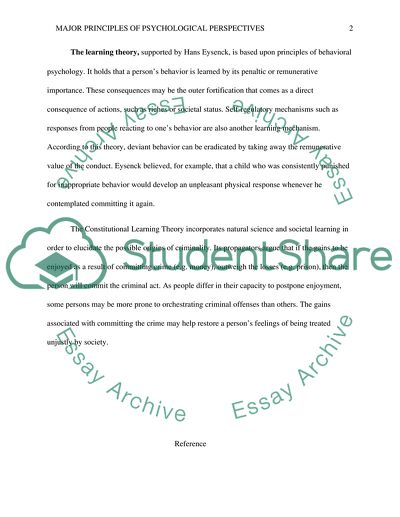Major Principles of Psychological Perspectives as they relate to Essay. Retrieved from https://studentshare.org/psychology/1584999-ged260-criminologyunit-2-chapter-5-essay-question-2
Major Principles of Psychological Perspectives As They Relate to Essay. https://studentshare.org/psychology/1584999-ged260-criminologyunit-2-chapter-5-essay-question-2.


